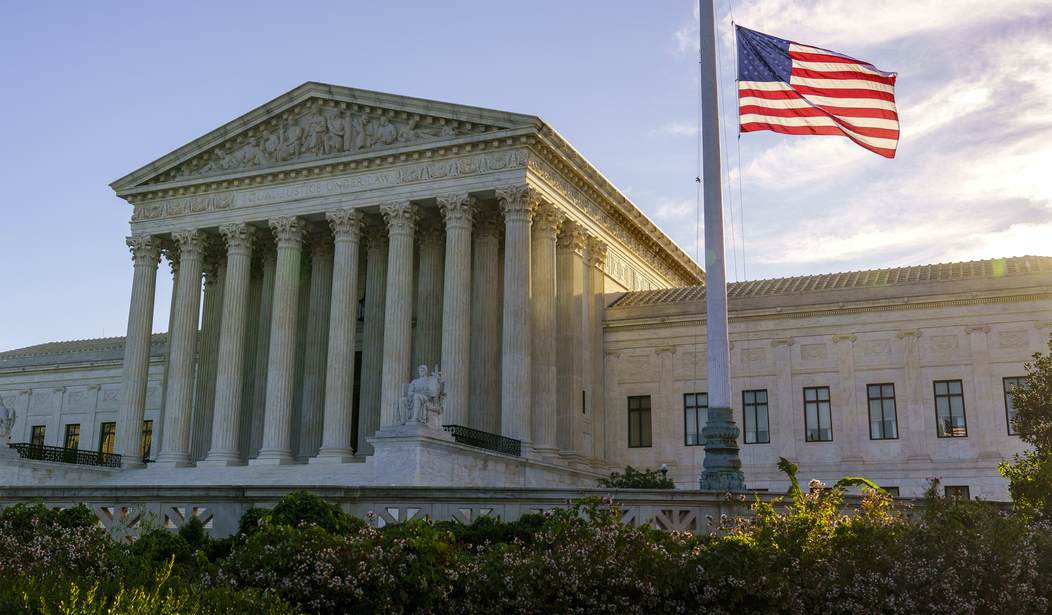The “Biden Rule” is totally irrelevant. So is the “Mitch McConnell Rule” from 2016. And Ruth Bader Ginsburg’s dying wish.
The only rule that matters as Senate Republicans prepare to act on President Trump’s expected Supreme Court nominee is Article II, Section 2, Clause 2 of the U.S. Constitution, which provides that the President “shall have Power, by and with the Advice and Consent of the Senate…shall appoint …Judges of the supreme Court.”
That’s it. That’s the only rule that applies here. And surprisingly, Democrats nearly unanimously agree.
“The Constitution is pretty clear about what’s supposed to happen,” former President Barack Obama confidently proclaimed. “When there is a vacancy on the Supreme Court, the president of the United States is to nominate someone. The Senate is to consider that nomination, and either they disapprove of that nomination or that nominee is elevated to the Supreme Court. Historically, this has not been viewed as a question. There’s no unwritten law that says this can only be done in off years. That’s not in the constitutional text.”
He’s right, of course. Throughout American history, 16 Supreme Court seats have come open in presidential election years. An additional 13 have come open during the lame duck session after the election. The sitting president made an appointment every single time. Why? Because the Constitution authorizes him to until the day he leaves office.
Recommended
When the president’s party has controlled the Senate, the Senate has typically confirmed these nominees, often very quickly. In 1912, the Republican-controlled Senate confirmed Republican President William Howard Taft’s nomination of Mahlon Pitney just five days after Taft nominated him. Four years later, the Democrat-controlled Senate took just 10 days to unanimously confirm the Democratic president’s nomination of John Clarke.
“Presidents do not stop working in the final year of their term; neither should a senator,” Obama intoned. “My earnest hope is that senators take that time to reflect on the importance of this process to our democracy. Not what's expedient, not what's happening at the moment. What does this mean for our institutions, for our common life? The stakes, the consequences, the seriousness of the job we all swore an oath to do.”
“The Constitution is 100 percent clear,” added Senator Bernie Sanders. “The President of the United States has the right to nominate someone to be a justice of the Supreme Court. The Senate’s function is to hold hearings and to vote.”
After all, the American people deserve a full and complete Supreme Court.
“You cannot keep a seat on the Supreme Court, which represents all of us,” noted Senator Patrick Leahy. “You cannot keep it vacant against the Constitution.”
“The American people deserve a fully staffed Supreme Court of nine,” added Democratic presidential nominee Joe Biden. “Not one disabled and divided, but one that is able to rule on the great issues of the day: Race discrimination, separation of church and state, whether there’s a right to an abortion — and if so, safe and legal abortion, police searches.
“These are actual cases before the Supreme Court of the United States, before the courts," he continued. "We have to make sure that a fully functioning Supreme Court is in a position to address these significant issues, and that geographic happenstance cannot fragment our national unity.”
Even Joe Biden, it seems, doesn’t believe in the Biden Rule. He believes only in the Constitution, and the Constitution is clear: presidents reserve the right to nominate Supreme Court justices even in presidential election years and the Senate retains the authority to “advise and consent”—either voting to confirm or reject a nominee or even refuse to take up the nomination altogether.
Prominent Democrats all agree; or at least they did in 2016 when they were arguing that the Senate was required to vote on President Obama’s nomination of Merrick Garland. The Senate most certainly did not. It was perfectly within its constitutional power to table his nomination until it was either withdrawn or Obama left office. And that’s exactly what happened.
Now, however, those same Democrats are so desperate to keep President Trump from nominating a replacement for the late Justice Ginsburg that they seem to have forgotten all of the constitutional principles that they so ardently defended just four years ago.
Even the late Ginsburg herself, who allegedly told loved ones shortly before her death that her “fervent wish is that [she] will not be replaced until a new president is installed," was adamant in 2016 this wish was in fact nonsensical.
"There's nothing in the Constitution that says the president stops being the president in his last year," she said.

























Join the conversation as a VIP Member